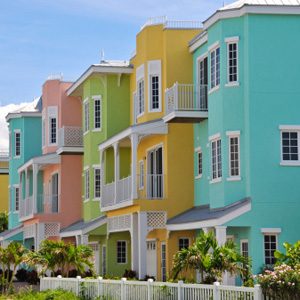
1. If You’re a First Timer
Real estate is a great choice for an entry-level investor, even if you can’t afford your dream home right away. Where do you start? Fixer-uppers are increasing in popularity thanks to HGTV, but be wary of overinflated prices. If you’re purchasing a home hoping to renovate and reap rewards, make sure your realtor gives you the full picture of cost versus benefit. Not all projects are worth the effort. “Fix-and-flip won’t win on a condo,” says Dale Way, a sales representative at Ottawa Property Hunters. And plan to put up to $100,000 in improvements on a house to get a significant return on investment.
(Photo: Thinkstock)

2. If You Prefer Condo Living
A condo purchased now can build equity toward a down payment on a house later on. If you’re looking at a condo, research its board members and management company to ensure their reliability when it comes to scheduled maintenance or repairs. Minutes from the board of directors meetings can help give you a clear picture.
(Photo: Thinkstock)

3. If You’re Looking to Upgrade
When you’re tired of playing stroller Tetris in your entryway and decide to move into a bigger place, Way recommends finding a realtor you like who’s familiar with the neighbourhoods you prefer. With a bigger house comes a bigger mortgage, so try living with your new budget for six months before you buy to make sure it’s realistic. And while you may be set on the perfect backyard and are already smelling the citronella, be careful not to become so focused on the search for a new home that you neglect the importance of getting all the equity possible out of your current property, through repairs or renovations, to further the purchase of your next one.
(Photo: Thinkstock)

4. If You’re an Empty Nester
While condo prices are down for the first time in 10 years, Way sees them as a practical choice, especially for retirees looking to downsize. Often, they’re near amenities that are easily reached on foot. “Condos usually have great access to transit systems, and they’re usually located closer to medical centres and recreational facilities,” he says. If fixed income is an issue, consider a building where utilities are included, so you can predict exactly what you’re paying each month.
(Photo: Thinkstock)

5. If You Want A Part-Time Home
If you’re only living in your home part-time, a condo provides security when you’re away-from coded access to security cameras to underground parking. “Condos have huge benefits for snowbirds,” says Way. “You lock your door and leave.” But he reminds clients to make sure they have liability insurance, in case the washer’s waterline breaks while they’re off enjoying black-diamond moguls or beachfront margaritas.
(Photo: Thinkstock)

6. If You Want a Home on the Beach
Lifestyle is the number one thing Way recommends his clients consider when looking for a second home, pied-à-terre or vacation property. This isn’t just a roof over their heads; it’s something to enjoy. Often, waterfront recreational homes are the best choice, he says. These properties will retain their value and stay in high demand in Canada.
(Photo: Thinkstock)

7. If You’re Looking Beyond Your Borders
When looking outside the country, it’s important to be aware of inherent complexities: different laws require time and research before a purchase is made; and once you own a property, tax issues can be complex. But according to the Florida Realtors association, Canadians are still spending south of the border. From March 2011 to April 2012, they accounted for 31 per cent of homebuyers in the state, which makes us Florida’s largest group of foreign buyers. Overwhelmingly, Canucks decided to invest in resort properties and planned to use their homes for three to six months of the year. The place you’re most likely to find fellow expats who aren’t in line at Disney World? The Bradenton-Sarasota-Venice area.
(Photo: Thinkstock)